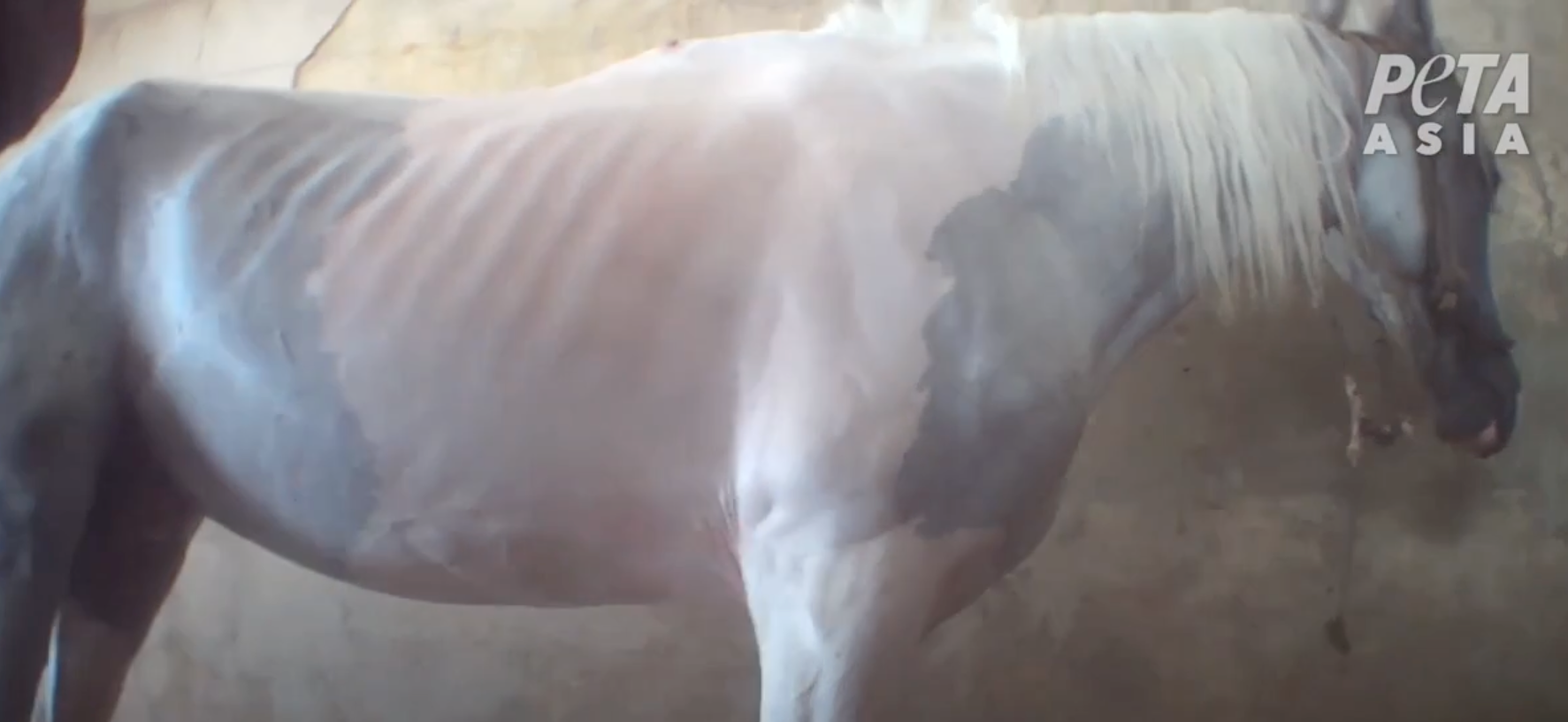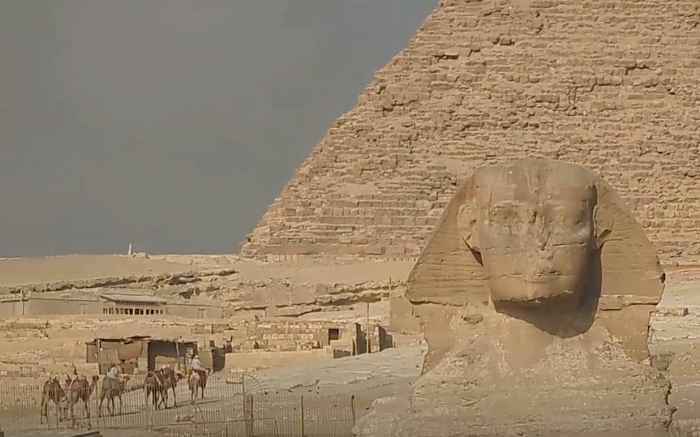Horses and camels used to ferry tourists in a major Egyptian tourist hotspot near the pyramids are being worked to death and dumped, an investigation has claimed.
Distressing video footage shared with The Independent shows animal corpses that campaigners say have been left to rot just outside the Great Pyramid complex in Giza, despite recent reforms for their protection.
The animal victims are used for tourist rides until their bodies wear out, according to the welfare group Peta (People for the Ethical Treatment of Animals). Some are left to die in the heat while others are “simply worked to death” and dumped near the Giza plateau, the group says.
The investigation by Peta Asia is the latest in a series of exposes on the dark underbelly of Egypt’s tourist industry.
The animal rights organisation warned that the opening of a major new archaeological museum nearby on Saturday – the long-awaited $1bn Grand Egyptian Museum – would bring huge numbers of tourists to the area and potentially put more animals at risk.
In the bleak footage, which The Independent has decided not to show, the bodies of horses are seen lying out among piles of rubbish in Cairo.
“They’re often worked to death or simply left to die among the piles of dead bodies discarded outside the pyramids,” a Peta spokesperson said. “Camels from the tourism industry are also sold to slaughterhouses to be sold for their flesh.”
Past investigations in Egypt have shown horses, painfully thin from malnutrition, left to die in “graveyards” out of sight, with rope “handles” punctured through their skin. One found that camels are killed in front of each other and even in front of children.

Camels no longer considered useful may have their throat slit while fully conscious, it is claimed. The Independent saw disturbing footage of animals left to bleed out in public spaces, away from tourists.
Investigators have documented since 2019 how the animals at the pyramids are made to haul holidaymakers around, or serve as photo props in the blistering heat without access to adequate food, water or shade.
Despite pledges to protect the animals at Egypt’s archaeological sites, investigators said this year that they had found horses and camels dumped just beyond the walls of the ticketed area at the Giza plateau every single day.
Peta Asia vice president Jason Baker called on Egyptian president Abdel Fattah El-Sisi to allocate a portion of the new museum’s profits to create a sanctuary to relocate and retire the animals at the plateau, “giving these sensitive, complex beings who have laboured and suffered there the chance to finally live free and joyfully”.

The organisation also urges tourists to refuse camel and horse rides and photo opportunities, and travel companies to stop promoting them or including them in their tours. They advise tourists to speak up to their hotels or travel agencies if they see animals being abused.
An investigation by Peta Asia last year was followed by some reforms as major travel companies like Airbnb stopped advertising animal tours at the Giza pyramid complex.
Egypt’s tourism minister launched a programme for the care and protection of animals at archaeological sites, and a bus transport system was set up as an alternative to protect the tourism industry without harming animals.
The Ministry of Tourism and Antiquities previously promised to introduce substantial reforms after the initial 2019 investigation documented the abuse of animals at top tourist spots.
But investigators showed in 2023 and 2024 that working animals were still being beaten when too exhausted to continue, and killed for the flesh when unable to work.
“Sadly, we’ve seen no meaningful change,” the Peta spokesperson said. “Some attempts were made to provide water and shade for the animals, but these have proved inadequate, and water troughs are often empty.”
“There have been many promises of reform from the Ministry of Tourism and Antiquities that have not been realised.
“Veterinary care was promised, yet horses and camels are still found with untreated wounds and injuries, camels with terrible mange, and animals left to die rather than be given veterinary treatment or humane release from their suffering.
“The buses are available for visitors as a means of transportation, but while the Egyptian government still permits the use of animals at the site, little will change. The only way to end this abuse and suffering is for the authorities to remove and retire all of the horses and camels to a sanctuary.”
The Independent has contacted the Egyptian Ministry of Tourism and Antiquities for comment.

